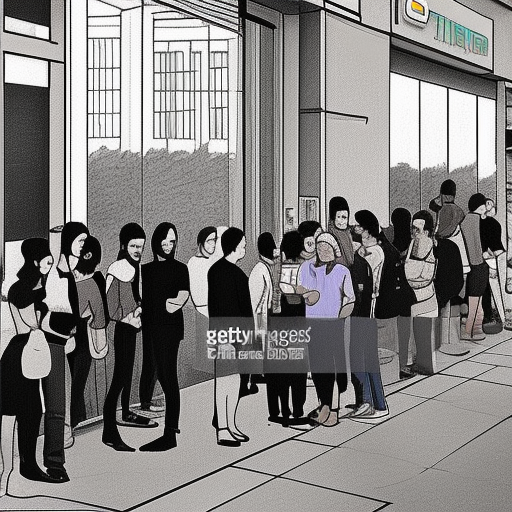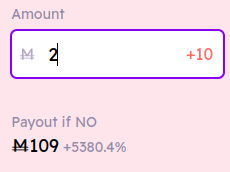
Resolves YES if uninsured depositors of Silicon Valley Bank recover all of their uninsured funds by March 10, 2024, according to official announcements or reporting by reliable media publications. Otherwise NO.
Context: Silicon Valley Bank was closed Friday morning by state regulators and put under the control of the FDIC, after a bank run and capital crisis.
https://www.cnn.com/2023/03/10/investing/svb-bank/index.html
🏅 Top traders
| # | Trader | Total profit |
|---|---|---|
| 1 | Ṁ273 | |
| 2 | Ṁ220 | |
| 3 | Ṁ114 | |
| 4 | Ṁ88 | |
| 5 | Ṁ85 |
Resolves YES. https://home.treasury.gov/news/press-releases/jy1337 "Depositors will have access to all of their money starting Monday, March 13." and reporting from today says that they are indeed processing withdrawals.
@jack I might have missed something, but resolving sounds premature until it is clear that SVB actually meets all the criteria for the "bailout" (semantics of that word aside), they get enough liquidity to cover all depositors and money changes hands, right? Or is that what was announced for tomorrow?
@MartinModrak It was announced that depositors will have access to all of their funds Monday (today).
https://home.treasury.gov/news/press-releases/jy1337 "Depositors will have access to all of their money starting Monday, March 13. "
@BTE Yes it is rumored they get 50% of their deposit back tomorrow, if that's what you meant. That's not really relevant to my comment though.
@GaryGrenda I mean 50-60 percent chance this question resolves YES tomorrow. 75 percent by the end of the week. https://apple.news/AdTsjUVPFTr2COjzWoYlFnA
@jack Ex ante, we decided as a society that depositors would be absolutely protected up to $250K but would bear risk above that. I think it would be reasonable to have decided on unlimited deposit protection as you suggest, but I don't like this system where the government decides ex post whether a given group of uninsured depositors is worth bailing out.
I think unlimited FDIC coverage might be a good idea (epistemic status: low confidence). The US implemented has unlimited FDIC coverage as a special measure in the past.
250k is reasonable for most individuals, but is enormously insufficient for even small businesses. One of the big concerns about SVB's failure was whether businesses would be able to make payroll on Monday - the cash they were using to make payroll is locked up in SVB. Many of the affected companies don't even bank with SVB - they are affected simply because their payroll processor (Rippling) used SVB. I personally know people who were in that exact situation - they weren't sure whether they would get their next paycheck on time, despite the fact that their company didn't keep cash at SVB, but just because their company used Rippling. Why should that be their fault? Why should employees be unable to be paid because of SVB's collapse? I think that shouldn't happen - the regulators should fix this situation, and I'm glad they did.
@MP "They lent money to a bad bank" - I disagree with this on many levels. See above, many affected companies didn't even use SVB. Also, SVB was a top 20 bank and was financially sound as of their last quarterly reports. Additionally, many depositors had to keep all their deposits at SVB as a condition of their loans from SVB.
@jack Prompt access to (most) funds is a separate issue from whether depositors should have to take a haircut. The feds always front uninsured depositors a conservative estimate of their claim on the bank almost immediately. As far as unlimited insurance, I think that would need to go hand-in-glove with more conservative regulation -- if the taxpayers are going to be on the hook to that extent, banks in SVB's shoes should not be allowed to take on that much interest-rate risk, accept so much concentration in one industry, etc.
250K is too low for insurance. But Roku had $487MM there. Somewhere between 250K and 487MM is the point at which I start having more sympathy for @MP 's argument.
@Jason I agree that they are different issues. There's many good reasons the FDIC wants to avoid a haircut too, and they generally have been able to pay out 100% of deposits.
Since the IndyMac failure in July 2008, the FDIC has rarely imposed losses on uninsured deposits, particularly at large, failed banks. Instead, the FDIC has used a “least cost resolution” test to justify protecting uninsured deposits against any loss.
Under this test, if the FDIC’s projected loss in a failed bank can be reduced by fully protecting uninsured deposits against any loss, the bank’s entire deposit franchise — including uninsured deposits — can then be sold to one or several banks.
Selling all of a failed bank’s deposits and related customer relationships usually reduces the FDIC’s loss in closing the bank, which leads to lower deposit insurance premiums for healthy banks. Fully protecting uninsured deposits against loss when a large bank is closed also helps to calm financial markets.
Moreover, declining to impose losses on uninsured deposits does not compromise the objective of getting rid of too‐big‐to‐fail banks. The failed bank still disappears, even if another bank acquires all of its deposits and customers.
https://www.cato.org/commentary/fdic-invents-costly-solution-imaginary-problem
@jack The head of the FDIC during the 2008 drama has explained that usually, the "healthy acquirer would also cover the uninsured because they wanted the franchise value of those large depositors . . ." https://apnews.com/article/silicon-valley-bank-bailout-yellen-deposits-failure-94f2185742981daf337c4691bbb9ec1e
That's great -- it's converting an intangible asset of the failed bank (the value of its customer base) into full protection for all depositors. And when that happens, it is not the government deciding whether or not the uninsured of a specific bank get made whole -- the market ultimately decides, the government is just acting as an agent for the ununsured. But at least at the time of the announcement, there was no such deal made.
The problem here, as I see it, is that SVB depositors may have low or possibly even negative value for an acquiring bank. As a group, they are just too concentrated in one volatile industry to be appropriate for all but perhaps the largest banks. They are likely to withdraw a good bit of their money over the next year or so because of the tightening of funding in tech -- which isn't an attribute of a customer whose business you want to pay money to acquire (by agreeing to make uninsured depositors whole).
